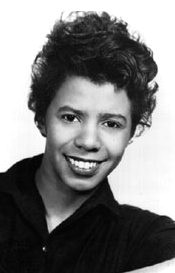(b. May 19, 1930, Chicago, Ill., U.S.–d. Jan. 12, 1965, New York, N.Y.), American playwright whose Raisin in the Sun (1959) was the first drama by a black woman to be produced on Broadway.
Hansberry’s father, a prosperous real-estate broker, fought a lengthy legal battle in the late 1930s against restrictive covenants that kept Chicago’s black inhabitants in ghettos. As part of this struggle the Hansberry family moved into a white neighbourhood, where Lorraine met daily hostility in her walks to and from school. Although her father took the case to the Supreme Court and won, he became disillusioned with the prospects for black equality in the United States and moved to Mexico.
Hansberry attended the University of Wisconsin for two years and then studied painting in Chicago and Mexico, before she decided she had no talent for it. Moving to New York in 1950, she held a number of jobs, meanwhile perfecting her skill as a writer.
Raisin in the Sun, a penetrating psychological study of the personalities and emotional conflicts within a working-class black family in Chicago, was directed by actor Lloyd Richards, the first black to direct a play on Broadway since 1907. It won the New York Drama Critics’ Circle Award, and the film version of 1961 received a special award at the Cannes Festival. Her next play, The Sign in Sidney Brustein’s Window, a drama of political questioning and affirmation set in Greenwich Village, where she had long made her home, had only a modest run on Broadway in 1964. Her promising career was cut short by her early death.
To Be Young, Gifted and Black, adapted by Robert Nemiroff from her writings, was produced Off-Broadway in 1969 and published in book form in 1970.
